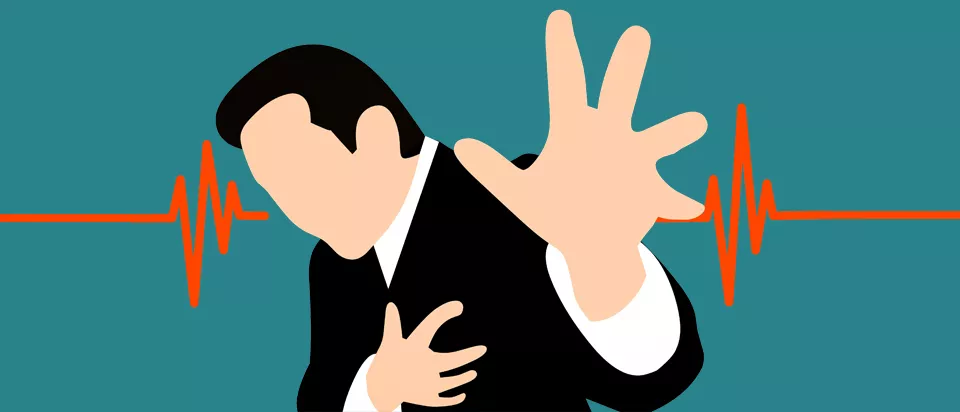Cardiac cough, also known as heart-related cough or cough due to heart failure, is a symptom that can significantly impact an individual’s quality of life. It often manifests as a persistent, dry cough that can worsen at night or when lying down.
Understanding the underlying causes of cardiac cough and employing appropriate management strategies are crucial for alleviating symptoms and improving patient outcomes.
What Is Cardiac Cough?
Cardiac cough is a cough that is primarily triggered by heart-related issues. It is not a standalone condition but rather a symptom of an underlying cardiac problem. The most common cause of cardiac cough is heart failure, a condition where the heart is unable to pump blood effectively, leading to fluid buildup in the lungs and other tissues. This fluid accumulation can irritate the airways, causing coughing.
Other cardiac conditions that can contribute to cardiac cough include:
Valvular heart disease: Malfunctioning heart valves can disrupt blood flow and lead to fluid retention, contributing to coughing.
Cardiomyopathy: This refers to diseases of the heart muscle, which can impair the heart’s ability to pump blood and cause fluid buildup.
Coronary artery disease: Reduced blood flow to the heart muscle due to narrowed or blocked arteries can weaken the heart and contribute to coughing.
Arrhythmias: Abnormal heart rhythms can affect blood flow and cardiac function, leading to symptoms such as coughing.
It’s important to note that while cardiac issues are a common cause of cough, not all coughs in individuals with heart disease are necessarily cardiac in origin. Other factors such as respiratory infections, allergies, or medications can also contribute to coughing in these patients.
SEE ALSO: what is the most common treatment for cardiomyopathy
How to Treat Cardiac Cough?
Treating the underlying cardiac condition: Managing heart failure or other cardiac issues is paramount. This may involve medications such as ACE inhibitors, beta-blockers, diuretics, or other drugs that improve heart function, reduce fluid retention, and alleviate symptoms.
Lifestyle modifications: Encouraging patients to adopt heart-healthy habits can complement medical treatment. This includes maintaining a balanced diet low in sodium, engaging in regular physical activity (as tolerated), quitting smoking, and managing stress.
Fluid management: Monitoring fluid intake and output is crucial for patients with cardiac issues. Restricting fluid intake, especially in cases of severe fluid retention, can help reduce coughing and improve breathing.
Positioning: Advising patients to elevate their head while sleeping can alleviate coughing episodes, as lying flat may exacerbate symptoms.
Medication adjustments: In some cases, medications that contribute to coughing (such as ACE inhibitors) may need to be adjusted or replaced with alternative drugs that are better tolerated.
Pulmonary rehabilitation: For patients with significant respiratory symptoms, pulmonary rehabilitation programs can improve lung function, endurance, and overall quality of life.
Regular follow-ups: Monitoring patients closely and conducting regular follow-up visits allows healthcare providers to assess treatment efficacy, adjust medications as needed, and address any new or worsening symptoms promptly.
Diagnosing Cardiac Cough
Proper diagnosis is essential for effectively managing cardiac cough.
When a patient presents with a persistent cough, especially if it worsens with lying down or at night, healthcare providers should consider the possibility of a cardiac origin. A comprehensive evaluation may include:
Medical history: Gathering information about the patient’s cardiac health, symptoms, medications, and past medical history can provide valuable insights.
Physical examination: Listening to the heart and lungs, checking for signs of fluid retention (such as swollen ankles), and assessing overall cardiovascular health.
Imaging tests: Chest X-rays and echocardiograms can help visualize the heart and detect any structural abnormalities or signs of heart failure.
Laboratory tests: Blood tests may be conducted to assess cardiac biomarkers and electrolyte levels, providing additional information about heart function and potential complications.
Electrocardiogram (ECG or EKG): This test measures the electrical activity of the heart and can detect abnormal rhythms or patterns indicative of cardiac issues.
Based on the findings from these evaluations, healthcare providers can determine the underlying cause of the cough and develop an appropriate treatment plan.
Managing Cardiac Cough: The management of cardiac cough focuses on addressing the underlying cardiac condition while also providing symptomatic relief.
Potential Complications and When to Seek Medical Attention
While cardiac cough itself is not life-threatening, it can indicate underlying cardiac issues that require proper management.
Failure to address these underlying conditions can lead to complications such as worsening heart failure, respiratory distress, or fluid overload.
Patients experiencing any of the following symptoms should seek medical attention promptly:
- Severe shortness of breath
- Chest pain or tightness
- Rapid or irregular heartbeats
- Sudden onset of coughing with pink, frothy sputum (may indicate pulmonary edema)
- Persistent cough despite medication adjustments
These symptoms could signal a medical emergency and require immediate evaluation and treatment.
Conclusion
Cardiac cough is a common symptom in individuals with cardiac issues, particularly heart failure. Understanding its causes, conducting a thorough diagnostic evaluation, and implementing a comprehensive management plan are essential for improving patient outcomes and quality of life. By addressing the underlying cardiac condition, making lifestyle modifications, and providing symptomatic relief, healthcare providers can effectively manage cardiac cough and help patients lead healthier, more comfortable lives. Regular monitoring and follow-ups play a crucial role in ensuring optimal management and early detection of any complications.

